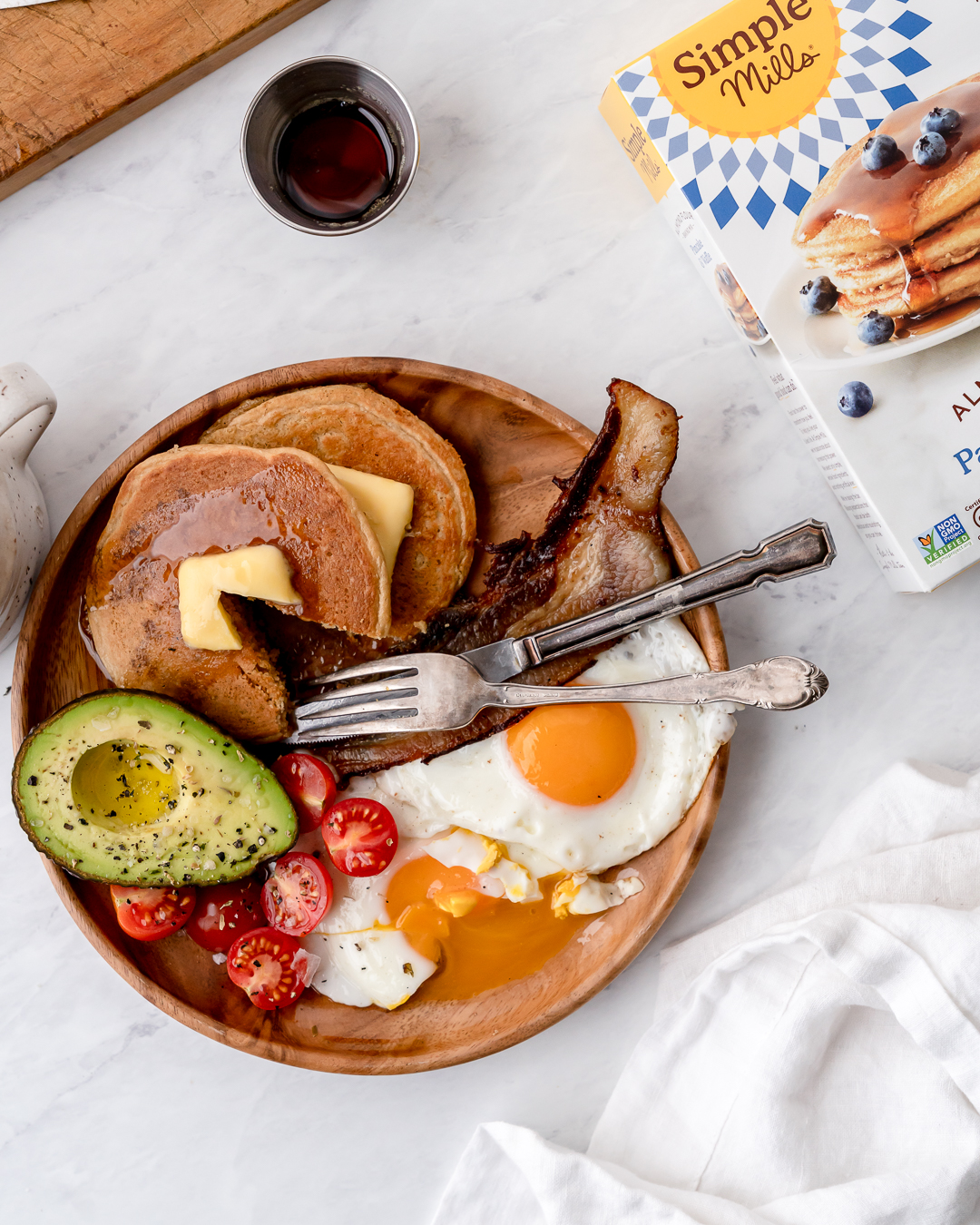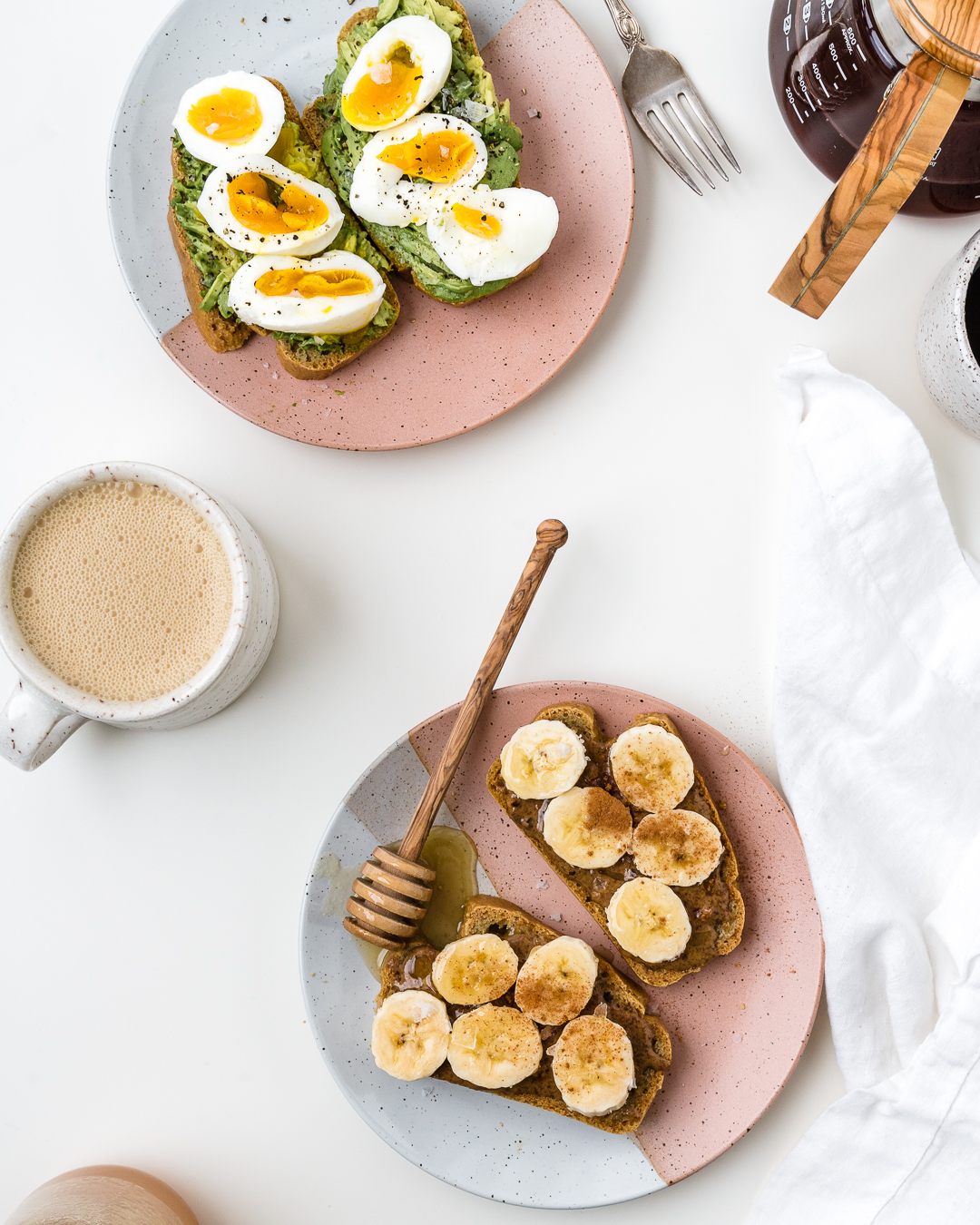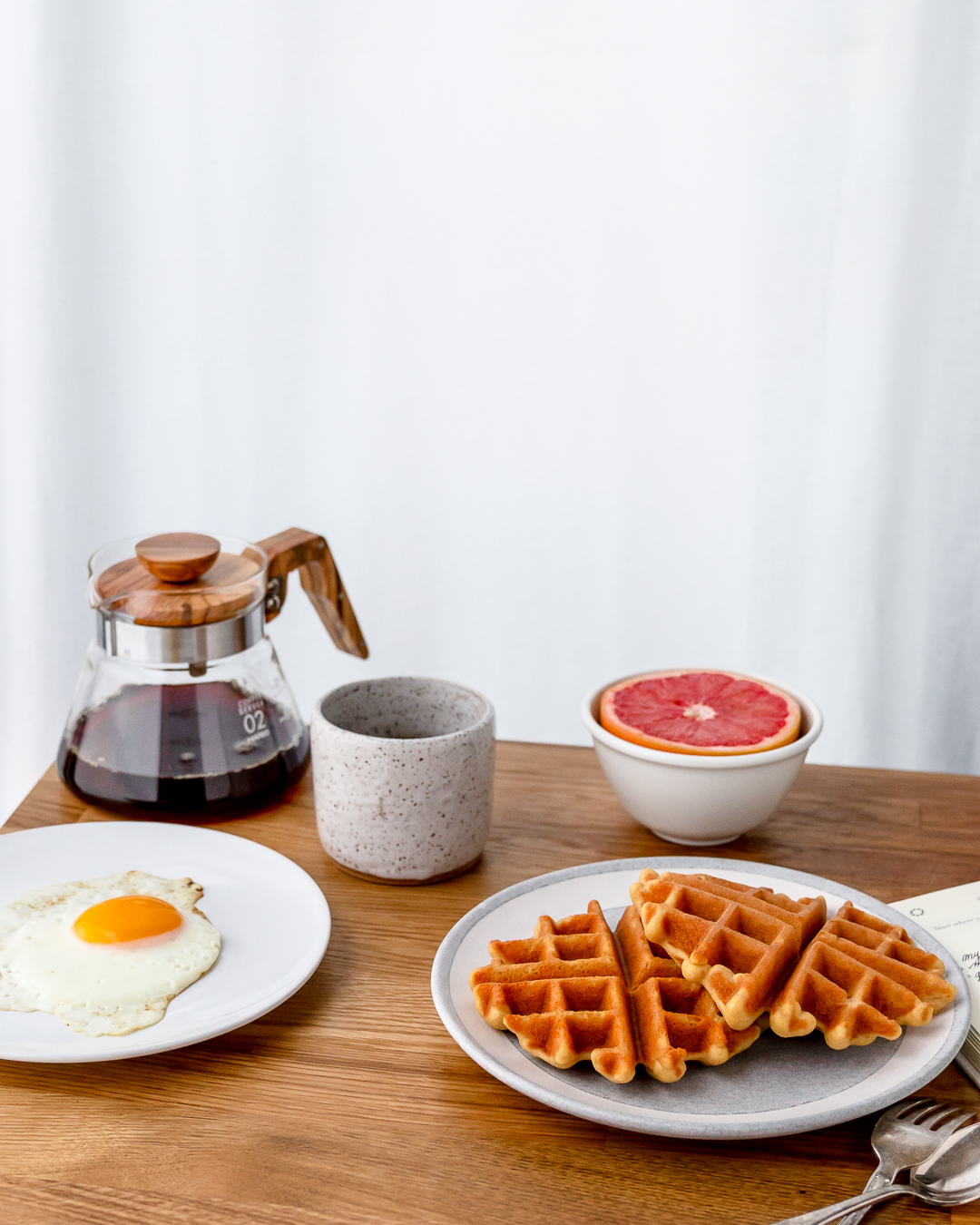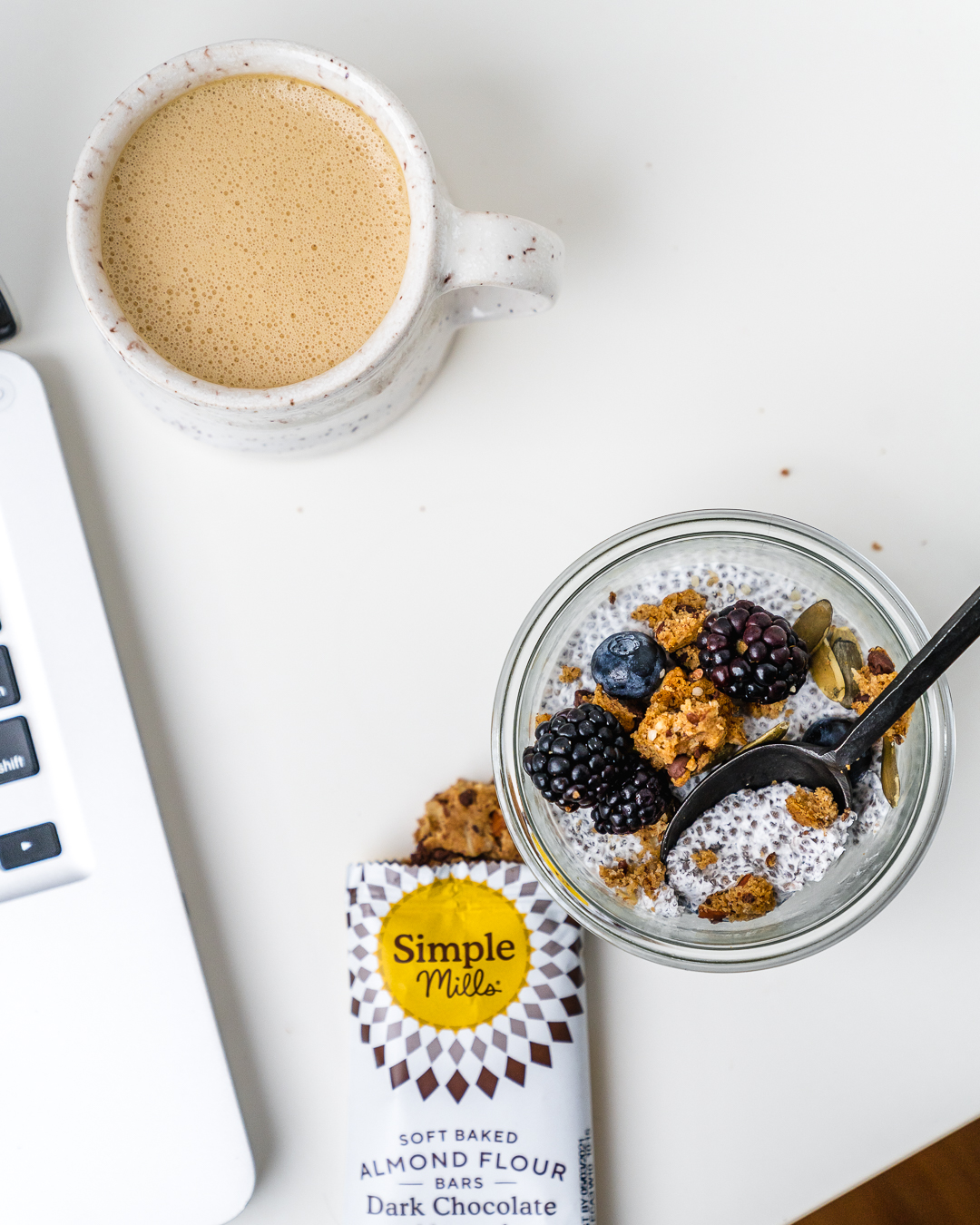How you begin your morning sets the tone for the day. Whether it’s starting with some quiet time or heading to the gym for a morning workout, factors like food can have a substantial impact on our morning and ultimately, the entire day. We’ve partnered with Registered Dietician, Olivia Wagner (MS, RDN, LDN) to give us the inside scoop on how we can build an epic breakfast to give us enough energy to tackle the day.
Where to start?
.jpg.aspx?width=310&height=387)
Building a balanced morning plate, be sure to include three things:
- Protein
- Produce (Color and fiber rich)
- Quality fat
- Bonus: Fermented foods like apple cider vinegar, cultured vegetables or yogurt
Breakfast recipes vary from person to person, but we always want to make sure it’s nutrient dense, blood sugar balancing and provides an adequate amount of energy to sustain us for at least 3-4 hours.
#1 Choose Nutrient Dense Foods
An easy way to ensure breakfast is nutrient dense, is to take advantage of colorful fruits and vegetables. Fresh produce provides a variety of micronutrients like folate, Vitamin C and Vitamin K as well as phytochemicals, which are anti-inflammatory compounds. A good rule of thumb is to select 2-3 different colors at each mealtime.
#2 Grab Foods that Help Balance Blood Sugar
.jpg.aspx?width=310&height=387)
Carbohydrates, high quality fats and protein are all referred to as macronutrients and are important in supporting nutrient density and balanced blood sugar. Starting the day with carbohydrates alone can be taxing for some individuals and their blood sugar levels and can ultimately leave us feeling less satiated. An easy and quick fix to a carb-loaded breakfast is to partner carbohydrates with a high quality fat or protein.
High quality fats like avocado, coconut, nuts and seeds help support the absorption of fat-soluble vitamins like Vitamins A, D, E and K while also providing fatty acids, which boost the brain and fight inflammation.
Research says including protein when breaking your fast (hence, break-fast), can improve satiety during the day and help in weight management. Some great protein sources perfect for breakfast include:
- Collagen
- Eggs
- Grass-fed Greek yogurt or Dairy Free Yogurt
- Hemp protein
- Organic sprouted tofu
- Pastured Bacon or Chicken Breakfast Sausage
- Smoked salmon
Pro tip: Adding a spoonful of fermented foods to breakfast can help with digestion and has been found to improve blood sugar response when eaten at mealtimes. Examples of fermented foods include apple cider vinegar, cultured vegetables like fermented pickles, kimchi and sauerkraut, kefir, miso and yogurt.
#3 Select Foods that Provide Adequate Energy
.jpg.aspx?width=310&height=387)
Remember, every body and everybody is different, it’s called bio-individuality, so listen to what feels right for you, your body and your lifestyle. Generally speaking, there are portion ranges that may help you decide how much you need to have enough energy to support your day. Here’s how they break down:
- Produce: ½-1 cup of fruit and 1-2 cups of vegetables. Remember, fresh produce provides both color and fiber, ensuring a variety of different micronutrients.
- Fat: 1 palm full of solid fat. Examples include ¼ avocado, full fat coconut milk or nuts and seeds. If selecting a more nutrient dense fat like butter, coconut oil, nut butter or olive oil, use 1-2 thumbs worth.
- Protein: 2-4 ounces. Some ideas are 2 eggs, 2 scoops of collagen, 1 serving of a plant-based protein powder, 2-3 ounces of chicken, breakfast sausage or turkey or 1 cup of Greek yogurt.
- Starch: Starches are optional, but if you want to include one, stick to something like ½ cup of sweet potatoes or roasted root vegetables.
Some breakfast recipes don’t include veggies or protein sources, so you will want to double down on a fiber rich carbohydrate or high quality fat. This will help prevent blood sugar spikes and will keep you feeling fuller for longer. Need some ideas? Try one of the following:
- Cauliflower “n’oatmeal” with berries, chia seeds and full fat coconut milk
- Coconut yogurt bowl with flax seed, sauteed pear and walnuts
- Chia seed pudding topped with fresh berries and a Soft Baked Bar
Balanced Breakfast Recipes
-(1).jpg.aspx?width=310&height=387)
If you need inspiration for some balanced breakfast ideas, try these recipes:
Banana Protein Breakfast Plate
A balanced breakfast can still include a morning favorite - bananas, especially when you get creative with this Banana Breakfast Plate. Bananas and berries are the meal’s produce, the almond flour-based muffin acts as both a high quality fat and protein while the bacon, eggs and yogurt provide three additional and delicious sources of protein.
Mini Quiches
Another balanced breakfast recipe is quiche. Enjoy two mini quiches then pair it with half of an avocado and a half cup of berries. The veggies found in the quiche cover produce, the almond base crust of the quiche and avocado make up a quality fat, the chicken and eggs are the main protein sources and the berries act as the starch. A balanced breakfast has never been so delicious!
Creating a balanced breakfast that is both satiated and satisfying is simple when you remember these three RDN approved tips.
Tag us @SimpleMills so we can see your favorite balanced breakfast recipes using Simple Mills family of products.